His epic poem ‘Utenzi wa Mtu ni Utu’ (MacMillan, 1979) elaborates upon utu, the Swahili term for humanity and goodness, and presents a theory of morality in poetic form. Many of his poems have been popularised as songs by the Swahili taarab musician, Juma Bhalo. Apart from being a poet, Ustadh Ahmad Nassir also stepped into the footsteps of his mother, Maryam Ahmad, as a healer- another profession in which he enjoys high reputation.

Lecture by Sheikh Abdilahi Nassir:
“Kenyan Muslims and the Righting of Historical Injustices: the Case of Mwambao”
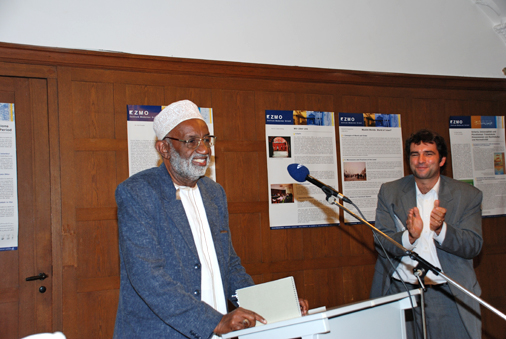
Sheikh Abdilahi Nassir generously held his lecture for the non-Swahili speakers in the audience in English, which he had not done in public for twenty eight years. In his captivating and rhetorically excellent lecture on “Kenyan Muslims and the Righting of Historical Injustices: the Case of Mwambao”, he talked about the historical background of his position as leader in the Mwambao (the coastal Independence movement in the early 1960s) and also made reference to current politics in Kenya. In response there was a lively discussion on various topics concerning Muslims in postcolonial Kenya.
Sheikh Abdilahi Nassir was a Member of Parliament in Colonial Kenya, he participated in the negotiation processes for Independence at Lancaster House in London. He worked as Editor and Managing Director for Oxford University Press East Africa in the 1970s, and later founded his own publishing house, Shungwaya Publishers in Nairobi. He was educated as a teacher and Islamic scholar, and turned to Shiism in the 1980s. He has published a variety of Islamic pamphlets and booklets in Swahili, and many audio- and video-recording of his lectures circulate widely in East Africa and beyond, and can also be found on the internet.
Text and choice of pictures by Katharina Zöller and Liese Hoffmann

Impressions of the Public Talks on July 10, 2008:
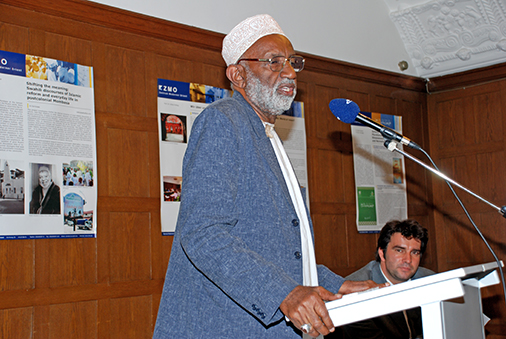
Sheikh Abdilahi Nassir during his lecture and Kai Kresse (ZMO)
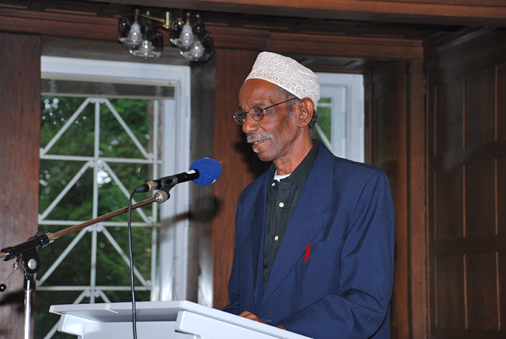
Ustadh Ahmad Nassir reciting his poetry

Abdilatif Abdalla (Lecturer of Swahili, Leipzig University) introducing the two scholars
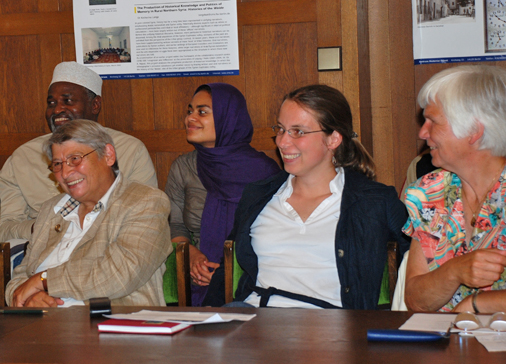
(Foreground from left to right) Gudrun Miehe and Clarissa Vierke, Bayreuth University
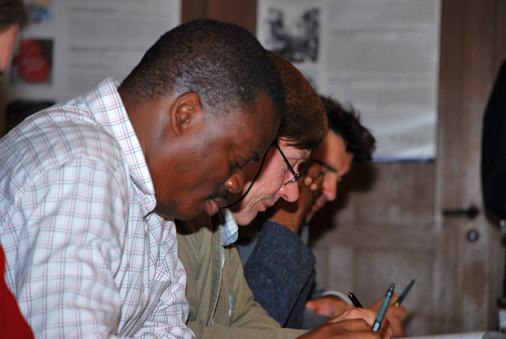
(Left to right): Hassan Mwakimako (ZMO), Ridder Samsom (Lecturer for Swahili, Hamburg University ) and Kai Kresse (ZMO)
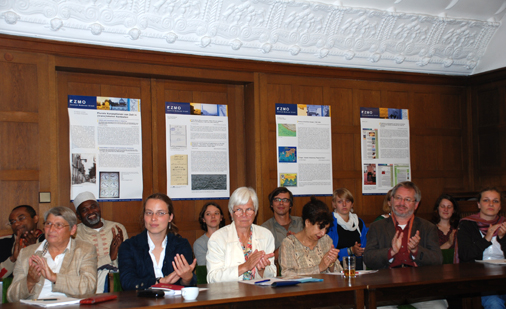
Applause by the Swahili speaking audience
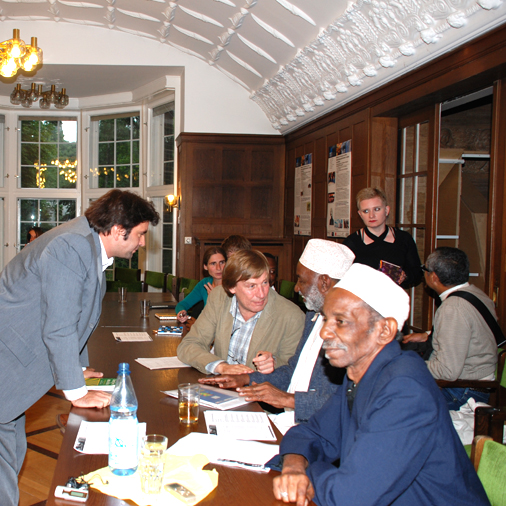
(foreground, left to right) Kai Kresse and Ridder Samsom talking with the two scholars and (in the background from left to right) Katrin Bromber (ZMO) and Marloes Janson (ZMO) and Shemil Jeppie (University of Cape Town)
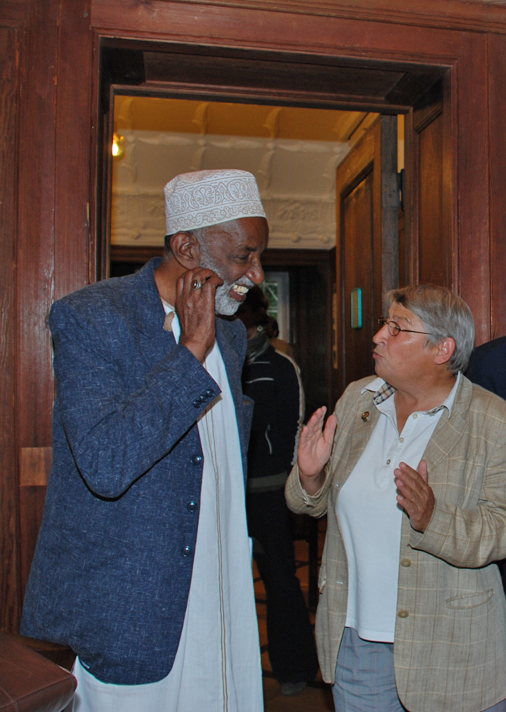
Sheikh Abdilahi Nassir and Gudrun Miehe
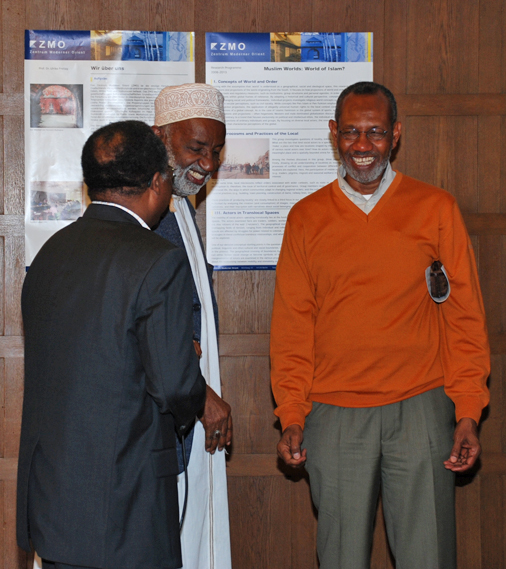
(left to right): Othman Miraji Othman (Swahili Section, Deutsche Welle), Sheikh Abdilahi Nassir and Abdilatif Abdalla

Impressions of the first baraza, July 3, 2008:
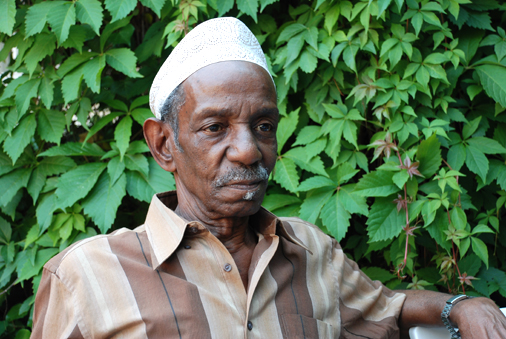
Ustadh Ahmad Nassir
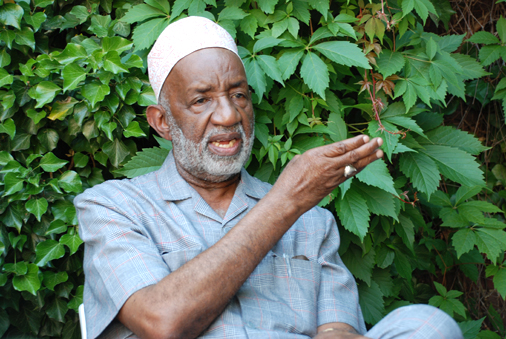
Sheikh Abdilahi Nassir
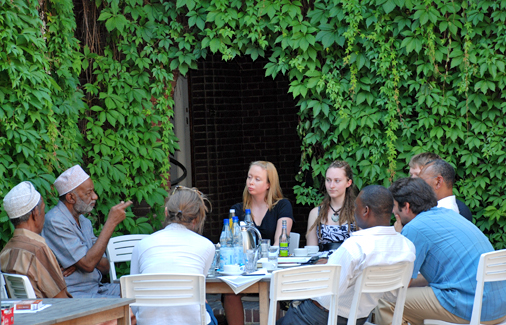
Sheikh Abdilahi Nassir and Ustadh Ahmad Nassir discussing in the courtyard of the ZMO with (clockwise, from to bottom): Kathriina Ranne (SOAS London), a student of Swahili, Lutz Diegner (Lecturer for Swahili, Humboldt University Berlin), Abdilatif Abdalla (University of Leipzig), Kai Kresse (ZMO), Hassan Mwakimako (ZMO), Liese Hoffmann (ZMO)
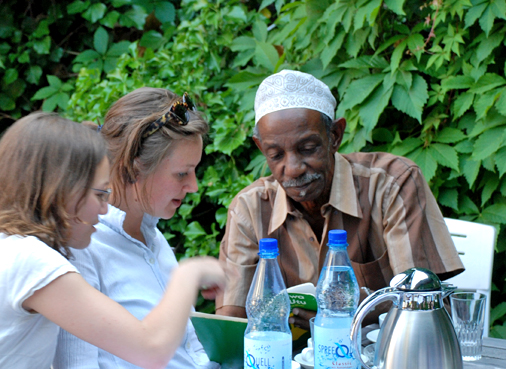
(from left to right): Katharina Zöller (ZMO), Liese Hoffmann (ZMO) and Ustadh Ahmad Nassir
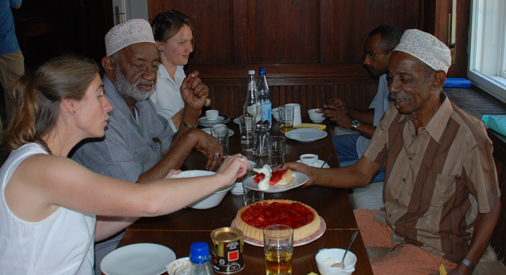
A German lunch at the ZMO (clock-wise from bottom left: Katrin Bromber, Sheikh Abdilahi Nassir, Liese Hoffmann, Chanfi Ahmed and Ustadh Ahmad Nassir)

|

